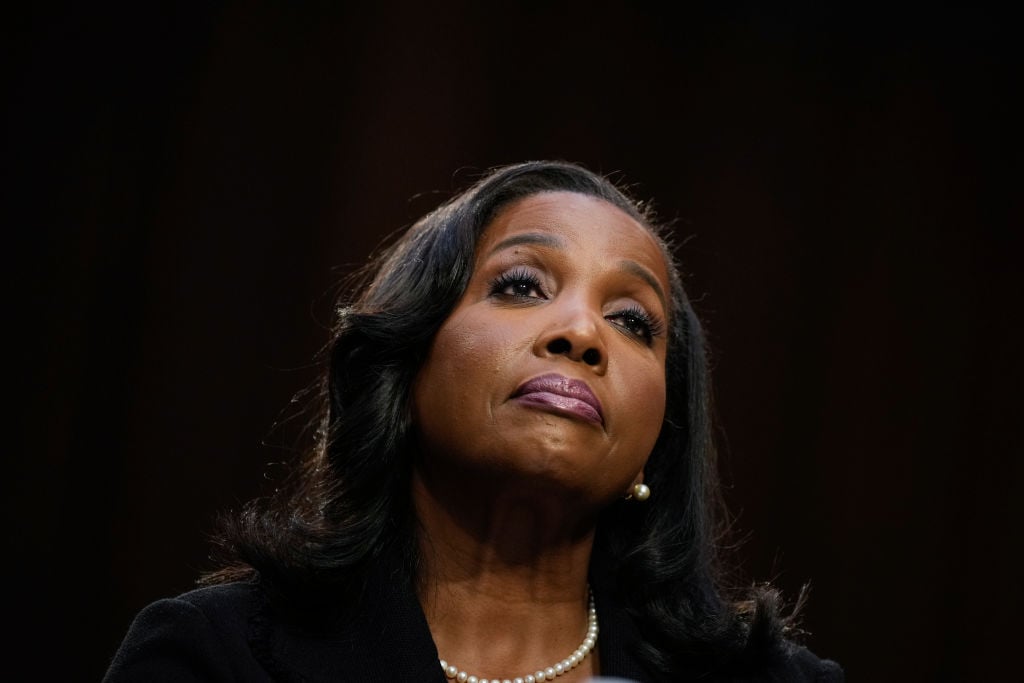Court Ruling in Favor of Lisa Cook: Implications for the Federal Reserve
On a significant day for U.S. monetary policy, an appeals court ruled on Monday that Lisa Cook can remain a Federal Reserve governor. This decision marked a notable rebuff of efforts by former President Donald Trump to remove her just as a crucial vote on interest rates loomed. The unfolding legal and political drama surrounding Cook’s position at the Fed speaks volumes about the intersection of politics and central banking.
A Presidential Power Play
The Trump administration’s attempt to oust Cook represents an unprecedented maneuver in the realm of the Federal Reserve, which has been designed to operate independently from the political machinations of the White House. Historically, no sitting Fed governor has been removed in the agency’s 112-year history. Trump’s actions raise critical questions about executive overreach and the preservation of institutional integrity at the Fed.
Amidst the unfolding events, it is anticipated that the Trump administration will appeal to the Supreme Court in a final effort to unseat Cook. This comes right before the two-day Federal Reserve meeting set to consider the next interest rate move. Cook’s lawsuit, aiming to block her firing permanently, remains pending in the courts, adding another layer of complexity to the situation.
The Upcoming Fed Meeting
Barring any swift intervention from the Supreme Court, the Fed is poised for a pivotal meeting with all seven governors participating, alongside the 12 regional bank presidents. The strategic decisions made during this meeting will directly impact the central bank’s short-term interest rate, which is currently around 4.3%. Amid various economic indicators, Chair Jerome Powell has hinted at a likely reduction of this rate to approximately 4.1%, a move that has already influenced borrowing costs across sectors such as mortgages and car loans.
Accusations of Fraud
The conflict escalated when Trump accused Cook of mortgage fraud linked to her residency claims on two properties. Such allegations could result in advantages for her in terms of lower mortgage rates, drawing scrutiny toward her financial dealings prior to joining the Fed. Cook has firmly denied these allegations, stating unequivocally that she hasn’t engaged in any illegal activity.
Amidst the legal and ethical questions, it is worth noting that U.S. District Court Judge Jia Cobb ruled last week that the administration had failed to meet the criteria necessary to dismiss Cook. According to Cobb, Fed governors can only be removed “for cause,” which can only pertain to misconduct while serving in office—a criteria Cook could not be argued against since she had not yet assumed her role when the alleged acts occurred.
The Economic Implications
Concerns about political influence over the Federal Reserve have been echoed by many economists who advocate for an independent central bank. Such independence is crucial for implementing unpopular measures, like interest rate hikes, to manage inflation effectively. Economists fear that undue political pressure could lead the Fed to keep interest rates artificially low, possibly stoking inflation further and leading to higher long-term borrowing costs.
Stephen Miran, recently confirmed as a new member of the Fed’s board, is notable for being an executive branch official simultaneously serving in such a high-stakes role at the Fed—a departure from precedent that could change the institution’s dynamic significantly. Miran’s dual responsibilities raise questions about conflicts of interest and the future of Fed policy-making.
Cook’s Background and Significance
Lisa Cook holds the distinction of being the first Black woman to serve as a Federal Reserve governor, a milestone in a historically homogeneous institution. She possesses an impressive academic pedigree, with accolades including a Marshall Scholarship and degrees from prestigious institutions like Oxford and Spelman College. Prior to her appointment, she shaped future leaders as an educator at Michigan State University and Harvard University’s Kennedy School of Government.
As she navigates these turbulent waters, Cook’s qualifications and standing in the economic community will play an essential role in how her situation unfolds. The implications of her case extend beyond her position, potentially influencing the future dynamics of the Federal Reserve and the broader economy.
Legal Developments and Public Reaction
The legal complexities keep deepening as Trump’s legal team argues that even actions taken prior to Cook’s official appointment cast doubt on her reliability and ability to manage the central bank’s responsibilities. Public response to Trump’s push against Cook has stirred widespread attention to the balance of power and independence that institutions like the Fed should maintain.
As this situation progresses, it underscores the larger narrative of institutional integrity and independence in an increasingly politicized landscape. The full ramifications of these events will unfold not only for Cook but for the future governance and credibility of the Federal Reserve itself.



